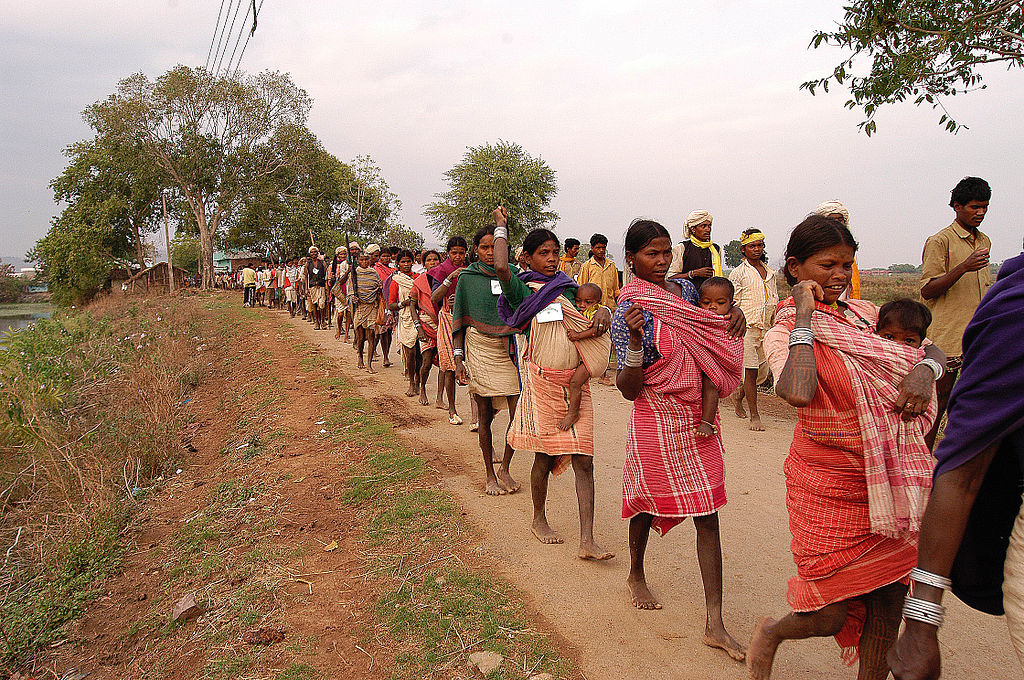The country has been going through an extended lockdown as a measure to control and contain the spread of COVID-19. And while we are flooded with images of how the lockdown is being implemented in the cities and towns across the length and breadth of the country, we are seeing or getting to know very little about what is happening to tribal forest communities and other forest dwellers. How are Indian tribal people coping with the lockdown, how have their livelihoods been impacted in these particularly challenging times and what kind of precautions are they taking to save themselves from the infection? Scanty availability of information on the plight of tribal people does not only affect the ways in which we evaluate and examine the implications of the lockdown but also blocks policy outreach.
How Have Tribals Been Affected by COVID-19 Pandemic and the Lockdown
Tribal people and other kinds of forest dwellers are facing an extremely difficult time due to the coronavirus pandemic. According to a preliminary assessment report made by the Community Forest Rights Learning and Advocacy, All India Forum for Forest Movements and other groups fighting for the rights of the Adivasi people, the plight of the tribal community is deteriorating day by day in the absence of quality measures by the states and the Centre. This very crucial report was sent to the Ministry of Tribal Affairs. The report has been entitled ‘Impact of COVID-19 outbreak and lockdown measures on tribal and other forest dwellers’, the report comprises concerns shared by tribal communities.
The report has been compiled and collated by information gathered by advocates of people’s forest rights and grassroots networks.
The report raises many important concerns regarding the plight of forest dwellers amid the lockdown. One of the important concerns that it highlights is the lack of healthcare facilities in the tribal belts and the lack of institutional mechanisms to address the growing loss of livelihood among the forest dwellers.
Another very important issue highlighted by the report underlines that due to the recent alterations in the environmental policies and the renewed restrictions on the movement of tribals, the lives of these forest people has become very difficult amidst the lockdown.
Lack of administrative and infrastructural facilities in the inner most tribal belts has added to the worries of the tribals.
Lack of Healthcare Facilities Among the Tribals
While making use of governmental data, this crucial report goes on to show that there are high levels of deprivation and exclusion faced by the tribal people. Such a derivation has led to denial of basic healthcare facilities in the inner most tribal belts for generations and resulting in chronic issues like malnutrition among a large section of tribal children. Moreover medical conditions such as Malaria, leprosy, tuberculosis and other diseases have radically challenged tribal peoples’ health over the last many years. This makes them more vulnerable and prone to infection even as a pandemic such as COVID-19 strikes and paralysis the country. The spread of COVID-19 is posing a serous threat before the tribal community and has made the tribal population more vulnerable than ever before. Low immunity and weak healthcare structures are making them increasingly vulnerable to the virus.
Production of Minor Forest Produce Crippled and is Posing a Threat to Tribal Livelihoods
We need to note that the greater chunk of minor forest produce is collected between the months of April and June every year. However, this year these months have coincided with the nationwide lockdown, the report underlies how the lockdown has resulted in extensive difficulties for the tribes as far collecting the forest produce is concerned and therefore effecting their livelihoods for the entire year.
The report also brings to light another important aspect related to the problem of the tribes and it is related to increased diversion of forest land for other purposes and putting severe restrictions on the movement of tribes.
This tenurial insecurity is looming like a big threat for the tribes. The other challenges that the tribes are facing are afforestation, diversion of ancestral forest land, displacement and loss of livelihoods.
Another matter of great concern is the fact that the union environmental ministry has used this time to clear many forest diversion proposals and has issued new guidelines relating to forest and environmental clearance norms for mining by new lessees when people have been confined due to the lockdown and cannot come out even if they have to protest.
Activists assert that the condition of the tribals is really very bad amid the lockdown and if the Centre does not come up with a concrete action plan then their population of 300 million will suffer radically in the coming few weeks.
The report keeps highlighting that the state governments too have been insensitive to the plight of the tribal people.
Activists and forest peoples rights groups have also demanded that the Ministry of Tribal Affairs constructs a special mechanism to address COVID-19 in the tribal belts and issues necessary guidelines or advisories to the states on measures to deal with the pandemic and help forest dwellers to deal with the hardships that they are facing in the lockdown. It is high time that the ministry, the state and the Central governments joined hands to take quality healthcare, food security, wage employment and strengthens MFP productivity and makes sure that the Forest Rights Act(FRA)is implemented in full spirit!








